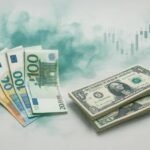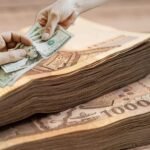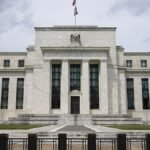US Treasury Secretary Henry Paulson has been forced to defend the US dollar’s status as the world’s main currency after European Central Bank President Jean-Claude Trichet and Canadian Finance Minister Jim Flaherty decried its slide.
With the dollar reaching record lows last week against the euro and Canadian dollar, Trichet called “brutal” shifts in exchange rates unwelcome, and Flaherty said he’s “concerned.”
On Saturday (NZ time) Paulson broke new ground in saying “there’s a reason” the US dollar has been the world’s reserve currency for decades.
“I put the US economy up against any in the world in terms of competitiveness,” he said.
Rebecca Patterson, a currency strategist at JPMorgan Chase in New York, said: “There was a clear change in policy maker rhetoric this week.”
The dollar’s standing as the main holding of central banks was undermined after Xu Jian, a vice-director of the People’s Bank of China, said last week that the dollar was “losing its status as the world currency”.
China has the world’s largest foreign-exchange reserves, totalling US$1.4 trillion ($1.8 trillion).
“There’s a question in the market about reserve diversification,” said Marc Chandler, head of currency strategy at Brown Brothers Harriman in New York.
Trichet has revived language he last used during the euro’s 2004 rally.
The currency’s moves “were undoubtedly sharp and abrupt,” he said. Hours later, Flaherty said exchange rates were having a “serious effect on Canada”.
Government figures showed Canada’s trade surplus narrowed to the smallest since 1998 as exports slumped.
The dollar has stoked American exports amid the worst housing recession since 1991 and threats to consumer spending. The trade deficit unexpectedly narrowed to the smallest since May 2005 in September, the Commerce Department said.
Adam Cole, head of currency strategy at RBC Capital Markets in London, said officials were unlikely to intervene in the market and buy dollars.
“The market will still assume it has the green light to sell dollars,” said Cole, who noted the US currency kept falling against the euro even after Trichet’s comments.
The weakening dollar does pose risks for the US, adding to inflation pressures at a time when the Federal Reserve has been lowering interest rates to safeguard economic growth.
-Bloomberg





















